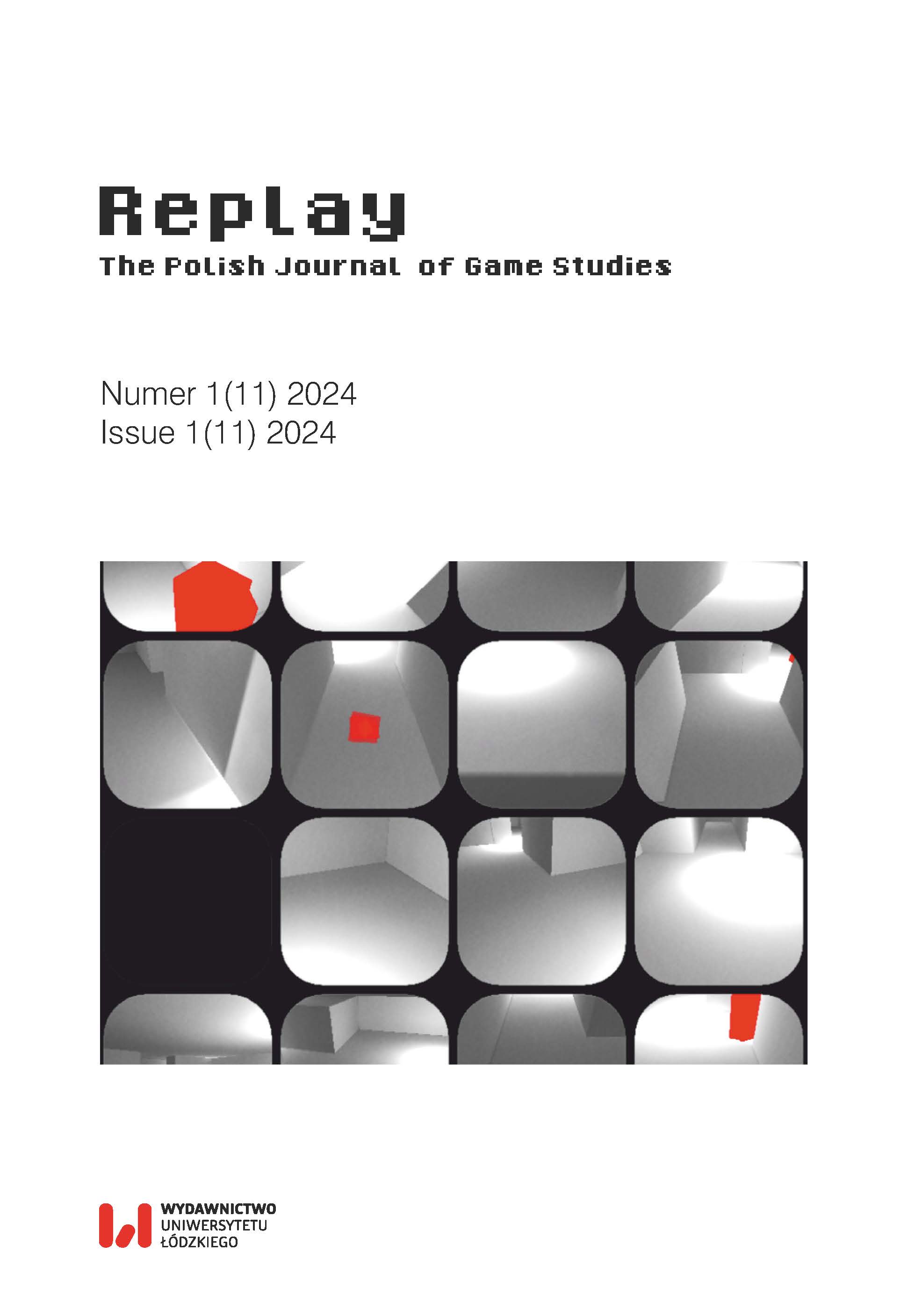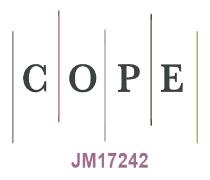Comfortably Numb: An Ideological Analysis of Coziness in Videogames
DOI:
https://doi.org/10.18778/2391-8551.11.06Keywords:
cozy games, atmosphere, animal crossing, utopia, a Little to the Left, Baudrillard, Žižek, capitalismAbstract
This essay analyses the concept of coziness in videogames, focusing on their role as a stress-relieving diversion in modern capitalist societies. The article emphasizes the genre’s features of safety, abundance, and softness, which create an atmosphere that soothes players amidst high-paced, contemporary lifestyles. While often framed as a type of resistant design, it is argued that cozy games uphold capitalist principles, by encouraging players to replicate them within the game. The discussion extends to the idea of coziness in interior design within these games, which is shown to reproduce ideologies of class, status, and consumerism. Drawing from atmosphere theory as well as the works of Jean Baudrillard, Slavoj Žižek, and Richard Dyer, the author argues that even the act of designing cozy spaces in these games serves as a continuation of capitalism and that cozy games may be thought of as utopian entertainment attempting to answer societal shortcomings through capitalist solutions. Thus, the essay posits that while cozy games offer a respite, they reproduce the conditions sustaining capitalist modernity.
References
Andiloro, A. (2023). Understanding Genre as Atmospheric Assemblage: The Case of Videogames. Television & New Media, 24(5), 559–570. https://doi.org/10.1177/15274764231171076
Google Scholar
DOI: https://doi.org/10.1177/15274764231171076
Baudrillard, J. (1996). The System of Objects. Verso.
Google Scholar
Bille, M. (2020). Homely Atmospheres and Lighting Technologies in Denmark: Living with Light. Routledge.
Google Scholar
DOI: https://doi.org/10.4324/9781003085621
Böhme, G. (2017). The Aesthetics of Atmospheres (J.-P. Thibaud, Ed.). Routledge.
Google Scholar
DOI: https://doi.org/10.4324/9781315538181
Booth, M. (2014). The Almost Nearly Perfect People: The Truth About the Nordic Miracle [EPub version]. Jonathan Cape.
Google Scholar
Brits, L.T. (2016). The Book of Hygge: The Danish Art of Living Well. Ebury Press.
Google Scholar
Dyer, R. (2005). Entertainment and Utopia. In: R. Dyer (Ed.), Only Entertainment (pp. 19–35). Routledge.
Google Scholar
DOI: https://doi.org/10.4324/9780203993941
Fizek, S. (2022). Playing at a Distance: Borderlands of Video Game Aesthetic. The MIT Press.
Google Scholar
DOI: https://doi.org/10.7551/mitpress/13605.001.0001
Harrington, J. (2018). On Buddhist Frogs and Flower Arrangements. The Philosophy of Computer Games Conference, 1–6.
Google Scholar
Higgins, C. (2016, November 22). The Hygge Conspiracy. The Guardian. Online: https://www.theguardian.com/lifeandstyle/2016/nov/22/hygge-conspiracy-denmark-cosiness-trend (accessed on December 26, 2023).
Google Scholar
Jameson, F. (1991). Postmodernism, or, The Cultural Logic of Late Capitalism. Duke University Press.
Google Scholar
DOI: https://doi.org/10.1215/9780822378419
Jensen, G.H. (2013). Making Sense of Play in Video Games: Ludus, Paidia, and Possibility Spaces. Eludamos: Journal of Computer Game Culture, 7(1), 69–80.
Google Scholar
DOI: https://doi.org/10.7557/23.6148
Keogh, B. (2018). A Play of Bodies: How We Perceive Videogames. The MIT Press.
Google Scholar
DOI: https://doi.org/10.7551/mitpress/10963.001.0001
Kerr, C. (2022, February 15). The methodical catharsis of tidying in A Little to the Left. Game Developer. Online: https://www.gamedeveloper.com/design/the-methodical-catharsis-of-tidying-in-a-little-to-the-left (accessed on December 26, 2023).
Google Scholar
Leonardi, P. (2010). Digital Materiality? How Artifacts Without Matter, Matter. First Monday, 15(6–7). https://doi.org/10.5210/fm.v15i6.3036
Google Scholar
DOI: https://doi.org/10.5210/fm.v15i6.3036
Linnet, J.T. (2011). Money Can’t buy Me Hygge: Danish Middle-class Consumption, Egalitarianism, and the Sanctity of Inner Space. Social Analysis, 55(2), 21–44. https://doi.org/10.3167/sa.2011.550202
Google Scholar
DOI: https://doi.org/10.3167/sa.2011.550202
Merleau-Ponty, M. (2005). Phenomenology of Perception. Routledge.
Google Scholar
Murdock, S. (2014). Producing Consumerism: Commodities, Ideologies, Pactices. In: C. Fuchs & M. Sandoval (Eds.), Critique, Social Media and the Information Society (pp. 125–143). Routledge.
Google Scholar
Parrish, A. (2022, November 25). A Little to the Left is the Perfect Calming Game to Wind Down With. The Verge. Online: https://www.theverge.com/23473263/a-little-to-the-left-nintendo-switch-pc (accessed on December 26, 2023).
Google Scholar
r/animalcrossingdesign. (n.d.). Animal Crossing Design. Online: https://www.reddit.com/r/animalcrossingdesign/ (accessed on December 26, 2023).
Google Scholar
Rojek, C. (2014). Capitalism and Leisure Theory. Routledge.
Google Scholar
DOI: https://doi.org/10.4324/9781315819884
Scully-Blaker, R. (2019). Buying Time: Capitalist Temporalities in Animal Crossing: Pocket Camp. Loading... The Journal of the Canadian Game Studies Association, 12(20), 90–106. https://doi.org/10.7202/1065899ar
Google Scholar
DOI: https://doi.org/10.7202/1065899ar
Shin, S. (2022). The Rise of the Cottagecore Game: The Modernity of Digital Gaming and Content Consumption. Acta Ludologica, 5(2), 4–17.
Google Scholar
Short, T.X., Ordon, A., Hurd, D., Howe, C., Forbes, J., Eiserloh, S., Diaz, J., Cook, D., & Meiners, R. (2018, January 24). Cozy Games. Lostgarden. Online: https://lostgarden.home.blog/2018/01/24/cozy-games/ (accessed on December 26, 2023).
Google Scholar
Sklair, L. (2002). Globalization: Capitalism and Its Alternatives. Oxford University Press.
Google Scholar
Sklair, L. (2012). Culture-Ideology of Consumerism. In: G. Ritzer (Ed.), The Wiley-Blackwell Encyclopedia of Globalization. Wiley Blackwell.
Google Scholar
DOI: https://doi.org/10.1002/9780470670590.wbeog099
Søderberg, M.T. & Lynggaard, K.H. (2016). Hygge: The Danish Art of Happiness. Penguin Books.
Google Scholar
Splechta, M. (2020, April 11). Review: Animal Crossing: New Horizons is a relaxing, rewarding treat. GameZone. Online: https://www.gamezone.com/reviews/animal-crossing-new-horizons/ (accessed on December 26, 2023).
Google Scholar
Streeck, W. (2012). Citizens as Customers: Considerations on the New Politics of Consumption. New Left Review, 76(July–August). Online: https://newleftreview.org/issues/ii76/articles/wolfgang-streeck-citizens-as-customers.
Google Scholar
u/candlesandcloth. (2022, July 2). Cozy Blue Vibes for My Sweet Old Man Dobie! [Reddit Post]. r/Animalcrossingdesign. Online: http://www.reddit.com/r/animalcrossingdesign/comments/vq15oe/cozy_blue_vibes_for_my_sweet_old_man_dobie/ (accessed on December 26, 2023).
Google Scholar
u/Joliz22. (2021, December 8). Friga’s Cozy Vacation Home [Reddit Post]. r/Animalcrossingdesign. Online: http://www.reddit.com/r/animalcrossingdesign/comments/rbttl2/frigas_cozy_vacation_home/ (accessed on December 26, 2023).
Google Scholar
Vella, D. (2019). There’s No Place Like Home: Dwelling and Being at Home in Digital Games. In: E. Aarseth & S. Günzel (Eds.), Ludotopia: Spaces, Places and Territories in Computer Games (pp. 141–166). transcript Verlag.
Google Scholar
DOI: https://doi.org/10.1515/9783839447307-008
Wark, M. (2007). Gamer Theory. Harvard University Press.
Google Scholar
DOI: https://doi.org/10.4159/9780674044838
Waszkiewicz, A. & Bakun, M. (2020). Towards the Aesthetics of Cozy Video Games. Journal of Gaming & Virtual Worlds, 12(3), 225–240. https://doi.org/10.1386/jgvw_00017_1
Google Scholar
DOI: https://doi.org/10.1386/jgvw_00017_1
Watts, R. (2022, November 9). A Little To The Left Review: Everything in Its Right Place.
Google Scholar
Rock, Paper, Shotgun. Online: https://www.rockpapershotgun.com/a-little-to-the-left-review (accessed on December 26, 2023).
Google Scholar
Wiking, M. (2017). The Little Book of Hygge: the Danish Way to Live Well. Penguin Life.
Google Scholar
Wolff, R. (2005). Ideological State Apparatuses, Consumerism, and U.S. Capitalism: Lessons for the Left. Rethinking Marxism, 17(2), 223–225.
Google Scholar
DOI: https://doi.org/10.1080/08935690500046785
Žižek, S. (2006). The Parallax View. MIT Press.
Google Scholar
DOI: https://doi.org/10.7551/mitpress/5231.001.0001
Bendon, J. (2022). Dinkum. James Bendon.
Google Scholar
ConcernedApe. (2016). Stardew Valley. ConcernedApe.
Google Scholar
Marvelous Inc. (2023). Story of Seasons: A Wonderful Life. Marvelous Games.
Google Scholar
MassiHive Media. (2022). Potion Permit. PQube.
Google Scholar
Max Inferno. (2022). A Little to the Left. Secret Mode.
Google Scholar
Nintendo EPD. (2020). Animal Crossing: New Horizons. Nintendo.
Google Scholar
Pathea Games. (2019). My Time at Portia. Team17.
Google Scholar
Roost Games. (2022). Cat Cafe Manager. Freedom Games
Google Scholar
Downloads
Published
How to Cite
Issue
Section
License

This work is licensed under a Creative Commons Attribution-NonCommercial-NoDerivatives 4.0 International License.










